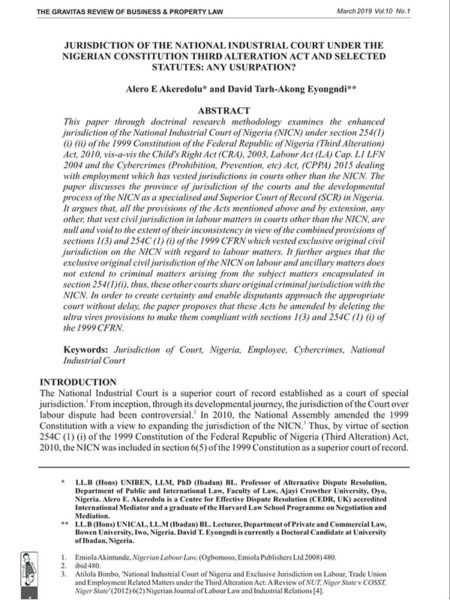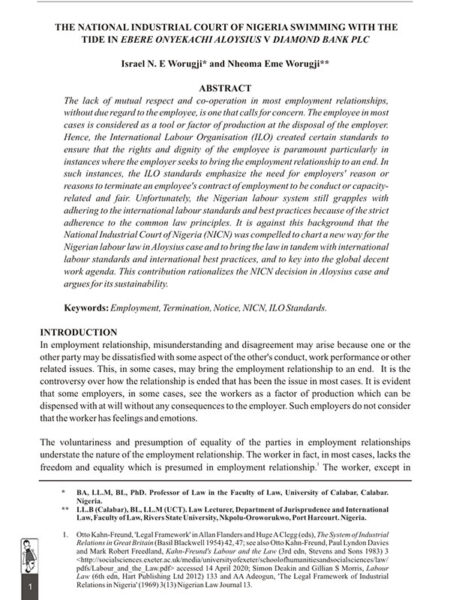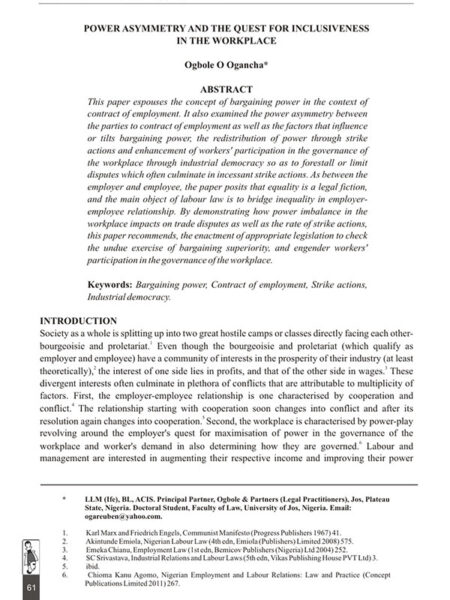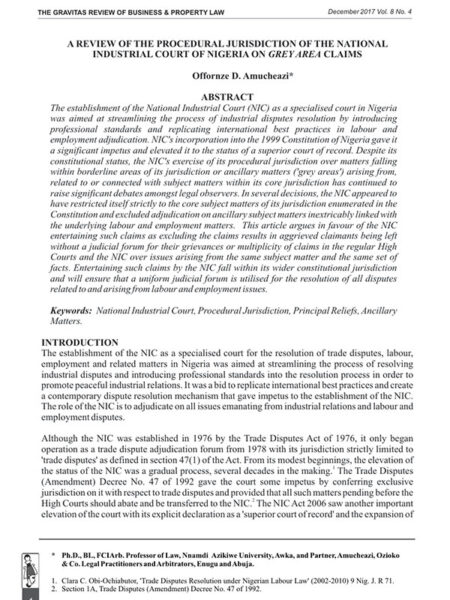Description
ABSTRACT
The Supreme Court of Nigeria Decision in Gbetu V. Itie: Is It a Case of Termination or Dismissal from Employment?
Faith N. Opara* & Olasupo Bada**
In a contract of employment, an employee’s employment can be brought to an end through termination or dismissal. While both mean and have the ultimate effect of bringing the employment contract to an end, their legal effect and impact on such an employee’s employment prospects are where their differences lie. The Supreme Court of Nigeria (SCN), as the final Court in Nigeria, held in Gbedu v Itie that employees whose employment was brought to an end by liquidation were, by this token, dismissed from the employ of the liquidated company. Through desk-based methodology, this paper relies on primary and secondary data to examine the propriety of this decision in light of the legal connotation of termination and dismissal from employment. It examines the meaning and legal effect of termination and dismissal from employment under Nigerian labour jurisprudence. It further examines the effect of the decision on Nigeria’s labour jurisprudence, particularly the security of employment and decent employment. It found that the decision was reached per incuriam. Therefore, lower courts are urged to distinguish and depart from the decision when faced with a similar situation, while the SCN is urged to overrule itself where the opportunity presents itself subsequently.
Keywords: Employment, Dismissal, Liquidation, Liquidator, Nigeria, Termination
INTRODUCTION
Where an employment contract is consummated either for a specific period or prospectively permanent till retirement, the contract could be prematurely ended.1 The bringing to an end of an employment contract could be due to various factors, including but not limited to mutual agreement between the parties, restructuring of the employer’s business, financial losses, adverse government policy, force majeure, frustration of the contract, liquidation, etc.2 Through these factors and many others, the employment could either end via termination or dismissal of the employee by the employer.3 The implication is that the two ways an employment contract can be brought to an end
*LL.B (Hons) AAU, LL.M (ABSU) BL. Barrister and Solicitor of the Supreme Court of Nigeria.
** B.SC, LL.B, LL.M, PhD (In view) Barrister and Solicitor of the Supreme Court of Nigeria and at present, PhD Candidate at the School of Law and Security Studies, Babcock University, Ogun State, Nigeria.
- Eyongndi, D.T. & Oyagiri, B. I., “Paradigm Shift on Remedies for Wrongful Termination of Master Servant Employment in Nigeria” (2019) 1(3) International Review of Law and Jurisprudence, Afe Babalola University 37-42.
- Okene, O.VC “Internationalization of Nigerian Labour Law: Recent Developments in Freedom of Association” (2016) 13 Port-Harcourt Journal of Business Law12.
- Worugji, I.N. Introduction to Individual Employment Law in Nigeria (Calabar: UNICAL Press, 1999) 156








Reviews
There are no reviews yet.